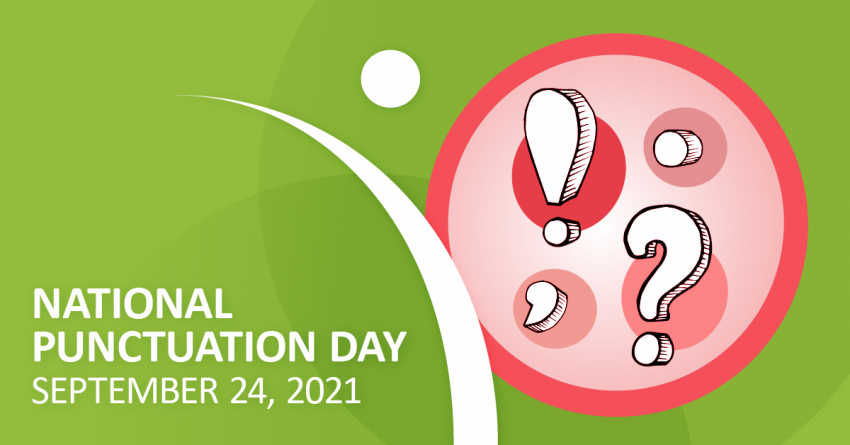Essential Punctuation Guidance for AEC Marketers
By Elise McGregor
AEC firms consistently rely on the written word to promote image, brand, and qualifications. Sophisticated writing skills are vital for any marketing professional, but knowing proper grammar and punctuation is especially invaluable for any team member.
At its best, punctuation is unnoticeable. At its worst, it renders a work unreadable. In most cases, if a reader is noticing punctuation, the writer is doing something wrong. Understanding which marks do what is foundational, and doing it with consistency is key. Without these two concepts, writing cannot carry the meaning it has set out to deliver.
Brushing up on the essentials, let’s revisit the comma and apostrophe. These distinctions clear up common mistakes:
Commas Introduce Natural Pauses
A comma separates independent clauses, pieces of a sentence that can stand on their own. “Sally sells seashells” is an independent clause, and so is “her booth is by the seashore.” These independent clauses come together like so: “Sally sells seashells, and her booth is by the seashore.”
Without a comma before the conjunction “and,” readers may be misled. They could read “Sally sells seashells and her booth” before they realize the real intent of the message.
Commas introduce natural pauses, without which a sentence might become a bland, aimless run-on. Make sure to add that comma between independent clauses to let your readers breathe.
Know Your Apostrophe Uses
“Its” and “it’s” are possessive and contractive, respectively. In other words, “its” is possessive while “it’s” means “it is” or “it has.” This seems counterintuitive, since the apostrophe-”s” is used in most other cases to signal possession, but this is a case in which that is not true. Be careful!
Example: “Its clerestory windows are a major draw” versus “It’s a concrete building.”
Three Punctuation Tips
With those cleared up, here are some general punctuation tips:
- In professional writing, avoid exclamation points and ellipses (…). Exclamation points may fit for social media, but they do not belong in proposals. Ellipses used incorrectly convey a lack of confidence or surety, which is a risky choice in professional writing.
- Vary your sentence structures. Have shorter sentences among longer sentences, varying your clauses and phrases. Syntactical diversity in writing helps keep reader interest, as overly repetitive structures cause boredom and fatigue. Place your periods wisely.
- Choose one punctuation mark to learn about, then practice with it. Be careful not to use the unique ones too often—semicolons (;) and colons (:) tend to stand out. Find ways to integrate them into your writing, learn how to use them properly, then whip them out when they’re most beneficial.
A useful site for a quick and simple overview is The Punctuation Guide, but there are many grammar resources at your fingertips. It’s never too late to learn, and the little things do make a difference.
Grammar rules can seem overwhelming, but tackling one thing at a time can help your writing immensely. With correct punctuation, your authority and expertise stay intact, and that is what your voice deserves. Start small, be consistent, and make a big difference.
As an AEC editor and writer, Elise McGregor knows both sides of the process. With increasing years under her belt tweaking and creating content for the AEC industry, she is passionate about ideas both big and small—from construction processes to noteworthy achievements. She has a thorough eye, a quick mind, and a reliable internet savvy to boot, ensuring clever attention to detail that whips everything into tip-top shape.


